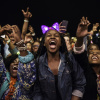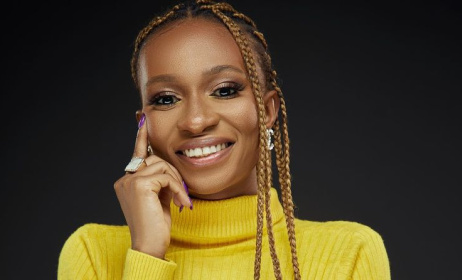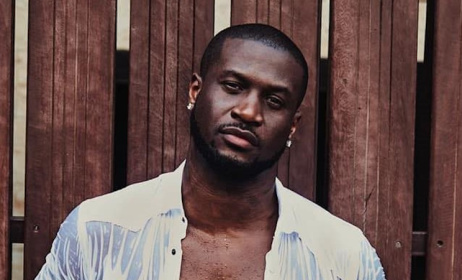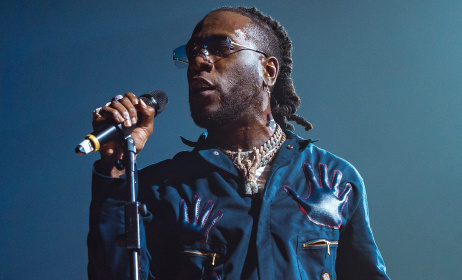Nigerian pop highlighted by The New Yorker magazine
The well-respected New Yorker magazine has joined the list of US publications to cover the Nigerian pop scene as it exerts influence on pop music globally.
 Davido is one of several Nigerian popstars featured by The New Yorker in a September 2018 issue.
Davido is one of several Nigerian popstars featured by The New Yorker in a September 2018 issue.
For the piece, the photos of a number of Nigerian artists were taken by Swiss-Guinean photographer Namsa Leuba, while the text was supplied by The New Yorker staff writer Kelefa Sanneh, who wrote music criticism for the New York Times for just under a decade. "Beats Generation" reads the headline, with the standfirst: "The Nigerian musicians who are changing the sound of global pop."
Starting with a photo of 2Baba taken at Eko Atlantic City in Lagos, the photo series, alongside a short essay, comments on a number of Nigerian artists and their approach to making music in the 24 September 2018 issue (already available online). Pointedly, Sanneh writes, 2Baba, “like many pioneers, is…less a virtuoso than a brilliant synthesist, with a knack for drawing together far-flung influences to create songs that seem plainspoken and homegrown.”
In a caption, the publication says the ‘African Queen’ singer “has to compete with younger peers nowadays, so his music has grown sleeker and more up-tempo. Last summer, he released an infectious dance track called ‘Gaga Shuffle’.” Nigerian readers might point to a recent hit, ‘Amaka’, as continuing 2Baba’s penchant for sleeker music.
2Baba’s dance-ready, younger peers are represented in the feature by Davido, Seyi Shay and others. Singer-songwriter Simi is exempt as she “specialises in songs, not in dance tracks: she is an expressive singer and writer, and her music coasts along on gentle, rippling rhythms”.
Leuba had previously worked on the Nigerian World Cup campaign, taking photos of models in Nike jerseys. One of the models for that campaign was Wizkid, whose absence in The New Yorker feature is bound to raise eyebrows, as many consider him the primary avatar for contemporary Nigerian pop.
“The music, which tends to be frenetic but playful, is sometimes called Afrobeats,” Sanneh writes. “(The term is often pluralised, to distinguish it from Afrobeat, Fela Kuti’s brand of funk.) It lives not just in Lagos but also in London, a secondary hub, and in other cities worldwide. One of its biggest boosters has been the Canadian rapper Drake, who made a series of recordings with the Afrobeats star Wizkid; their collaboration 'One Dance', from 2016, is among the most popular songs of this decade in any genre.”
In recent years, Nigerian music has increasingly got coverage in US media, as such publications as Noisey, Pitchfork, The Washington Post and Fader have devoted pages to the rise of Nigerian pop music.
























Commentaires
s'identifier or register to post comments